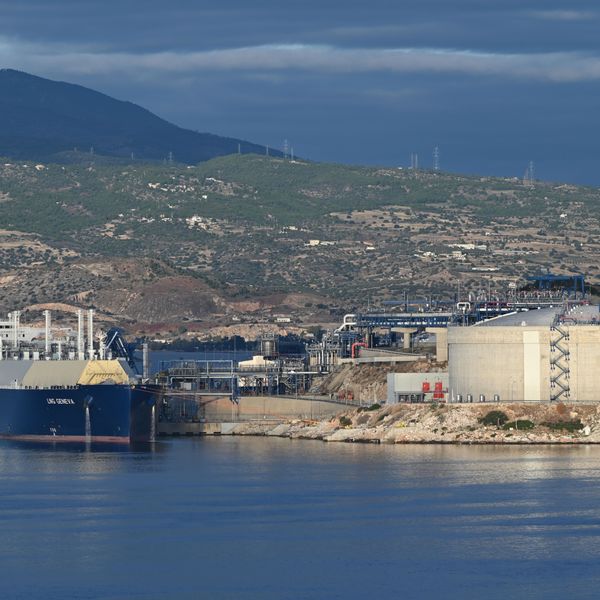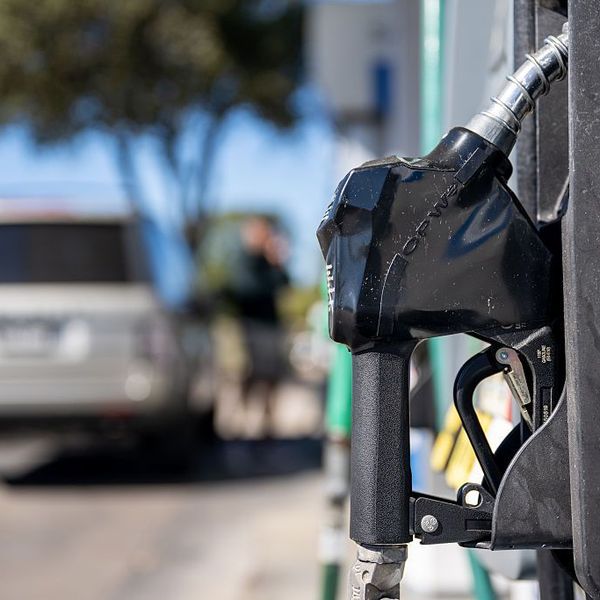Cheney Accused of Blocking Californian Bid to Cut Car Fumes
The US vice-president, Dick Cheney, was behind a controversial decision to block California's attempt to impose tough emission limits on car manufacturers, according to insiders at the government Environmental Protection Agency.
Staff at the agency, which announced last week that California's proposed limits were redundant, said the agency's chief went against their expert advice after car executives met Cheney, and a Chrysler executive delivered a letter to the EPA saying why the state should not be allowed to regulate greenhouse gases.
EPA staff members told the Los Angeles Times that the agency's head, the Bush appointee Stephen Johnson, ignored their conclusions and shut himself off from consultation in the month before the announcement. He then informed them of his decision and instructed them to provide the legal rationale for it, they said.
"California met every criteria ... on the merits," an anonymous member of the EPA staff told the Times. "The same criteria we have used for the last 40 years ... We told him that. All the briefings we have given him laid out the facts."
In an editorial, the New York Times described the decision as, "an indefensible act of executive arrogance that can only be explained as the product of ideological blindness and as a political payoff to the automobile industry".
Johnson said that because Bush signed an energy bill last week which raised fuel economy standards, there was no justification for separate state regulation. The president, the agency said, had provided a "clear national solution" and there was no need for a "confusing patchwork of state rules to reduce America's climate footprint from vehicles".
But Johnson's staff gave him the opposite advice, warning him that should he block California, the state would probably sue him in the courts and would probably win. The state's governor, Arnold Schwarzenegger, immediately announced that he would challenge the EPA's ruling in the courts, describing it as "legally indefensible".
California had wanted to implement a 2002 law limiting greenhouse gas emissions from cars and lorries. Had it been successful, 16 other states had said they would follow suit, effectively creating a national standard that car makers would have been obliged to follow.
(c) 2007 The Guardian
An Urgent Message From Our Co-Founder
Dear Common Dreams reader, The U.S. is on a fast track to authoritarianism like nothing I've ever seen. Meanwhile, corporate news outlets are utterly capitulating to Trump, twisting their coverage to avoid drawing his ire while lining up to stuff cash in his pockets. That's why I believe that Common Dreams is doing the best and most consequential reporting that we've ever done. Our small but mighty team is a progressive reporting powerhouse, covering the news every day that the corporate media never will. Our mission has always been simple: To inform. To inspire. And to ignite change for the common good. Now here's the key piece that I want all our readers to understand: None of this would be possible without your financial support. That's not just some fundraising cliche. It's the absolute and literal truth. We don't accept corporate advertising and never will. We don't have a paywall because we don't think people should be blocked from critical news based on their ability to pay. Everything we do is funded by the donations of readers like you. Will you donate now to help power the nonprofit, independent reporting of Common Dreams? Thank you for being a vital member of our community. Together, we can keep independent journalism alive when it’s needed most. - Craig Brown, Co-founder |
The US vice-president, Dick Cheney, was behind a controversial decision to block California's attempt to impose tough emission limits on car manufacturers, according to insiders at the government Environmental Protection Agency.
Staff at the agency, which announced last week that California's proposed limits were redundant, said the agency's chief went against their expert advice after car executives met Cheney, and a Chrysler executive delivered a letter to the EPA saying why the state should not be allowed to regulate greenhouse gases.
EPA staff members told the Los Angeles Times that the agency's head, the Bush appointee Stephen Johnson, ignored their conclusions and shut himself off from consultation in the month before the announcement. He then informed them of his decision and instructed them to provide the legal rationale for it, they said.
"California met every criteria ... on the merits," an anonymous member of the EPA staff told the Times. "The same criteria we have used for the last 40 years ... We told him that. All the briefings we have given him laid out the facts."
In an editorial, the New York Times described the decision as, "an indefensible act of executive arrogance that can only be explained as the product of ideological blindness and as a political payoff to the automobile industry".
Johnson said that because Bush signed an energy bill last week which raised fuel economy standards, there was no justification for separate state regulation. The president, the agency said, had provided a "clear national solution" and there was no need for a "confusing patchwork of state rules to reduce America's climate footprint from vehicles".
But Johnson's staff gave him the opposite advice, warning him that should he block California, the state would probably sue him in the courts and would probably win. The state's governor, Arnold Schwarzenegger, immediately announced that he would challenge the EPA's ruling in the courts, describing it as "legally indefensible".
California had wanted to implement a 2002 law limiting greenhouse gas emissions from cars and lorries. Had it been successful, 16 other states had said they would follow suit, effectively creating a national standard that car makers would have been obliged to follow.
(c) 2007 The Guardian
The US vice-president, Dick Cheney, was behind a controversial decision to block California's attempt to impose tough emission limits on car manufacturers, according to insiders at the government Environmental Protection Agency.
Staff at the agency, which announced last week that California's proposed limits were redundant, said the agency's chief went against their expert advice after car executives met Cheney, and a Chrysler executive delivered a letter to the EPA saying why the state should not be allowed to regulate greenhouse gases.
EPA staff members told the Los Angeles Times that the agency's head, the Bush appointee Stephen Johnson, ignored their conclusions and shut himself off from consultation in the month before the announcement. He then informed them of his decision and instructed them to provide the legal rationale for it, they said.
"California met every criteria ... on the merits," an anonymous member of the EPA staff told the Times. "The same criteria we have used for the last 40 years ... We told him that. All the briefings we have given him laid out the facts."
In an editorial, the New York Times described the decision as, "an indefensible act of executive arrogance that can only be explained as the product of ideological blindness and as a political payoff to the automobile industry".
Johnson said that because Bush signed an energy bill last week which raised fuel economy standards, there was no justification for separate state regulation. The president, the agency said, had provided a "clear national solution" and there was no need for a "confusing patchwork of state rules to reduce America's climate footprint from vehicles".
But Johnson's staff gave him the opposite advice, warning him that should he block California, the state would probably sue him in the courts and would probably win. The state's governor, Arnold Schwarzenegger, immediately announced that he would challenge the EPA's ruling in the courts, describing it as "legally indefensible".
California had wanted to implement a 2002 law limiting greenhouse gas emissions from cars and lorries. Had it been successful, 16 other states had said they would follow suit, effectively creating a national standard that car makers would have been obliged to follow.
(c) 2007 The Guardian

